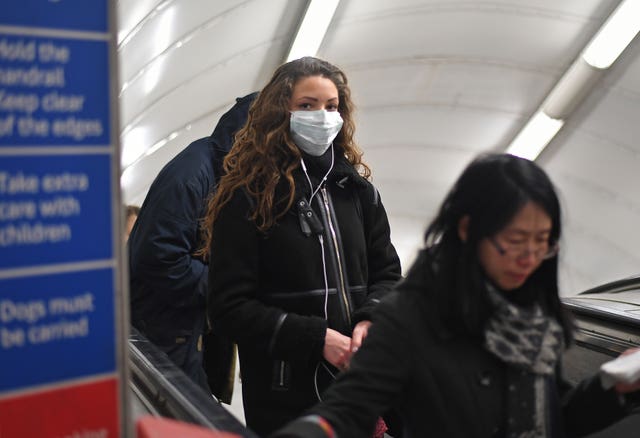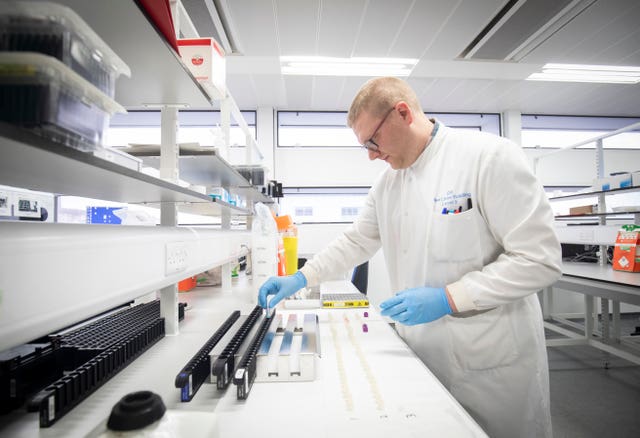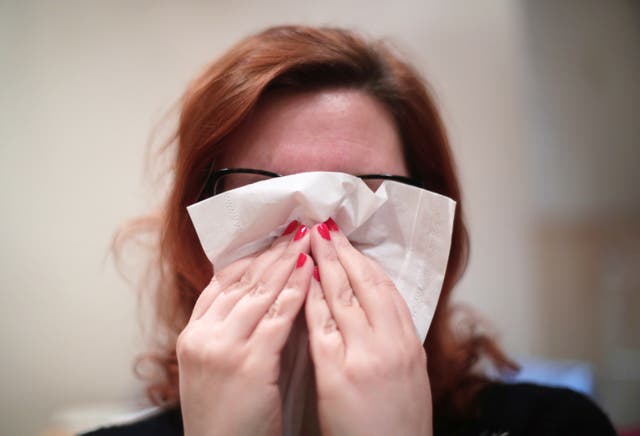Coronavirus March 5 – all you need to know
The number of confirmed cases in the UK has exceeded 100.

The battle against coronavirus is moving to the next phase as the number of people infected in the UK continues to rise.
Here is all you need to know today:
– What is the scale of the problem?
Cases of coronavirus in the UK more than doubled in 48 hours as the country moved towards the “delay phase” of tackling the virus.
A patient with underlying health conditions became the first person in the UK to die after testing positive.
The older patient had been “in an out of hospital” for other reasons but was admitted on Wednesday evening to the Royal Berkshire Hospital and tested positive.
Some 116 people have tested positive, including 105 in England, two in Wales, six in Scotland and three in Northern Ireland.
Just two days ago there were 51 UK cases.
China has reported more than 80,000 cases and almost 3,000 deaths.
Outside China, there have been more than 12,000 cases and over 200 deaths across more than 75 countries.
Half of all coronavirus cases in the UK are most likely to occur in just a three-week period, with 95% of them over a nine-week period, according to England’s chief medical officer Professor Chris Whitty.
Prof Whitty said he had a “reasonably high degree of confidence” that 1% is at the “upper limit” of the mortality rate for the virus, although Wuhan in China, which has a weaker health system, had seen an 8% to 9% mortality rate for those aged 80 and over.
– What is the Government doing now?
The UK has moved to the delay stage, which means measures can be ramped up to delay its spread, with possibilities including school closures, encouraging greater home working, and reducing the number of large-scale gatherings.
However, officials say closing schools would possibly only have a “marginal effect”, adding that children do not appear to be as badly affected by Covid-19 as other groups.
People returning from Hubei province in China, Iran, locked-down areas in northern Italy and special care zones in South Korea in the past 14 days should immediately self-isolate at home and call NHS 111.
Those returning from a number of other areas, including the rest of China and Korea, Japan, Hong Kong and Singapore, should self-isolate if they develop symptoms of a cough or fever or shortness of breath.
It also said those returning from Vietnam, Cambodia, Laos, Burma and northern Italy above Pisa should self-isolate if they show symptoms.
– How do I self-isolate if I am asked to?
If you are told to self-isolate, you should stay at home and not go to work, school or public places.
You should also not use public transport such as trains or buses, or take taxis.
You should try to avoid close contact with family members and do not have visitors to your home.
However, it is fine for friends, family or delivery drivers to drop off food.

The collapse of regional airline Flybe has been blamed in part on a drop in demand caused by coronavirus.
The Government estimates that up to one in five workers in the UK could be off sick during a coronavirus peak.
Prime Minister Boris Johnson has announced new sick pay changes as part of emergency coronavirus legislation so that anyone self-isolating is paid from day one rather than day four as current rules state.
Bank of England governor Mark Carney has said that while the hit to the economy in the UK and globally could be significant, it will “ultimately be temporary”.
– What about a vaccine?
Vaccines have been developed and researchers are starting to test them on animals, but tests can take months to see if any potential vaccine can be used on humans and there will then have to be trials on humans.
The World Health Organisation (WHO) has convened a group of experts to fast-track promising tests, drugs and vaccines, but Prof Whitty says it would be “lucky” to get a vaccine for Covid-19 in the next year.
The UK Government is putting £40 million into trying to find a vaccine and is also aiming to improve treatments for patients with the disease.

Coronaviruses are a large family of viruses that cause illnesses ranging from the common cold to more severe diseases such as severe acute respiratory syndrome (Sars).
The strain that has recently emerged is a new strain that had not been previously identified in humans. The respiratory disease it causes has been named Covid-19 by the WHO.
– Where did it come from?
Coronaviruses are zoonotic, meaning they are transmitted between animals and people, the WHO says.
The first cases identified were among people connected to the Huanan Seafood Wholesale Market in Wuhan, China.
– How is it spread?
Experts believe the virus is spread in cough and sneeze droplets.
The virus can survive on surfaces for several hours, but it is unclear exactly how long for.
Government scientists say a small proportion of people will pass on the virus while having no symptoms themselves.

Wash your hands with soap and hot water more often. Do this for at least 20 seconds each time.
The NHS says people should also wash their hands when they get home or arrive at work.
Hand sanitiser can be used if soap is not available.
Anyone with coughs and sneezes should catch them in a tissue, which is then put in a bin. Wash your hands afterwards.
People should also avoid close contact with people who are unwell, and avoid touching the eyes, nose or mouth if their hands are not clean.
– Should I avoid public places?
Most people can continue to go to work, school and other public places.
The current Government advice states mass events and public gatherings should not be cancelled, and people should continue to act normally for now.
People only need to stay at home and self-isolate if they are advised to do so by 111 or a health professional.

Initial symptoms include fever, cough, tightness of the chest, shortness of breath and breathing difficulties.
More severe cases can cause pneumonia, sepsis and septic shock, which can lead to death.
There are no specific treatments or vaccines but symptoms can be treated.
– Are some groups more at risk?
The UK Government says most cases appear to be mild and those who have died in Wuhan appear to have had pre-existing health conditions.
The Government says the elderly and people with pre-existing illnesses would be at highest risk.
Overall, around 1% of people who become infected “might end up dying” but this is “significantly” higher among people over 80, officials said.
But Prof Whitty says “the great majority of people will recover from this virus, even if they are in their eighties”.





